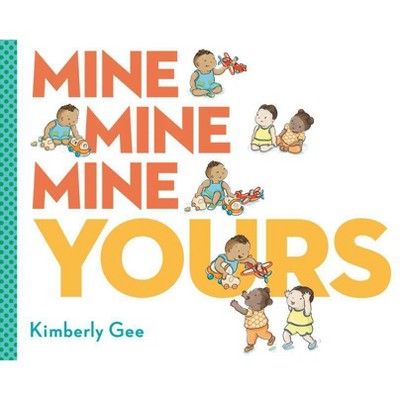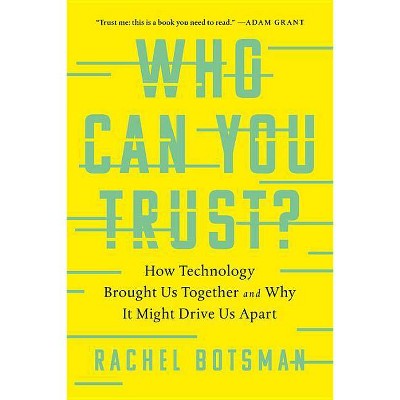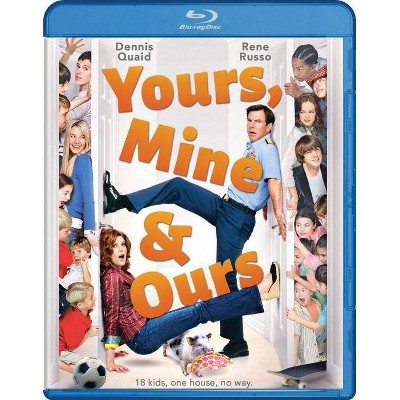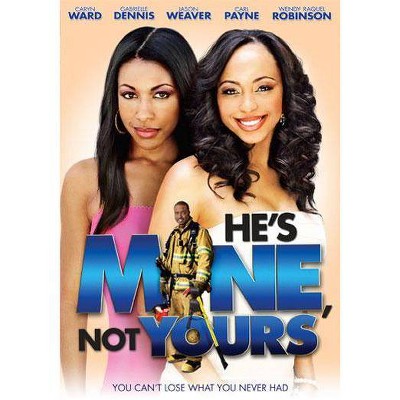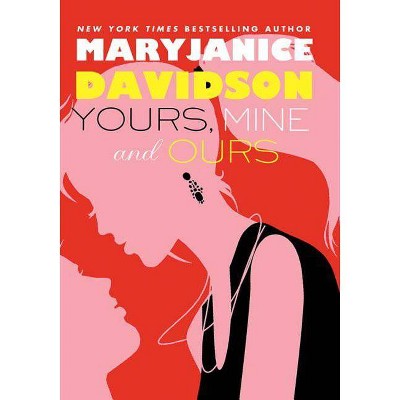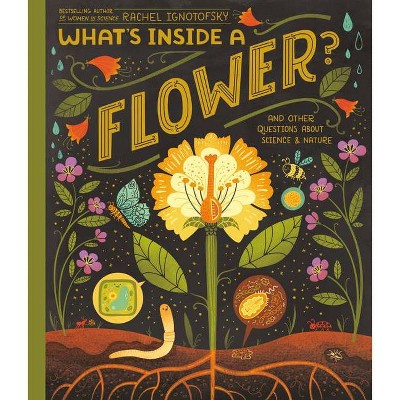What's Mine Is Yours - by Rachel Botsman & Roo Rogers (Hardcover)
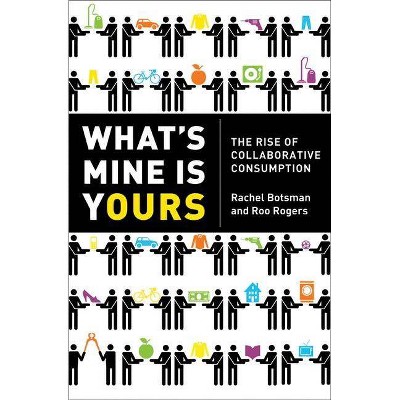
Similar Products
Products of same category from the store
AllProduct info
<p/><br></br><p><b> About the Book </b></p></br></br>A groundbreaking, idea-fueled, good-news book that explores the rise of a newsocioeconomic phenomenon based on shared resources and collective consumptionthe authors call "Collaborative Consumption."<p/><br></br><p><b> Book Synopsis </b></p></br></br>"Amidst a thousand tirades against the excesses and waste of consumer society, <em>What's Mine Is Yours </em>offers us something genuinely new and invigorating: a way out." --Steven Johnson, author of <em>The Invention of Air </em>and<em> The Ghost Map</em><br /><br />A groundbreaking and original book, <em>What's Mine is Yours </em>articulates for the first time the roots of collaborative consumption, Rachel Botsman and Roo Roger's timely new coinage for the technology-based peer communities that are transforming the traditional landscape of business, consumerism, and the way we live. Readers captivated by Chris Anderson's <em>The Long Tail</em>, Van Jones' <em>The Green Collar Economy </em>or Malcolm Gladwell's <em>The Tipping Point</em> will be wowed by this landmark contribution to the evolving ecology of commerce and sustainability. <br /><p/><br></br><p><b> From the Back Cover </b></p></br></br><p>WHAT'S MINE IS YOURS is about Collaborative Consumption, a new, emerging economy made possible by online social networks and fueled by increasing cost consciousness and environmental necessity. Collaborative Consumption occurs when people participate in organized sharing, bartering, trading, renting, swapping, and collectives to get the same pleasures of ownership with reduced personal cost and burden, and lower environmental impact. <p>The book addresses three growing models of Collaborative Consumption: Product Service Systems, Communal Economies, and Redistribution Markets. The first, Product Service Systems, reflects the increasing number of people from all different backgrounds and across ages who are buying into the idea of using the service of the product-what it does for them-without owning it. Examples include Zipcar and Ziploc, and these companies are disrupting traditional industries based on models of individual ownership. Second, in what the authors define as Communal Economies, there is a growing realization that as individual consumers, we have relatively little in the way of bargaining power with corporations. A crowd of consumers, however, introduces a different, empowering dynamic. Online networks are bringing people together again and making them more willing to leverage the proverbial power of numbers. Examples of this second category include Etsy, an online market for handcrafts, or the social lending marketplace Zopa. The third model is Redistribution Markets, exemplified by worldwide networks such as Freecycle and Ebay as well as emerging forms of modern day bartering and "swap trading" such as Zwaggle, Swaptree, and Zunafish. Social networks facilitate consumer-to-consumer marketplaces that redistribute goods from where they are not needed to somewhere or someone where they are. This business model encourages reusing/reselling of old items rather them throwing them out, thereby reducing the waste and carbon emissions that go along with new production.<p>WHAT'S MINE IS YOURS describes how these three models come together to form a new economy of more sustainable consumerism. Collaborative Consumption started as a trend in conjunction with the emergence of shared collective content/information sites such as Wikipedia and Flickr and with the recent economic troubles and increasing environmental awareness, it is growing into an international movement. The authors predict it will be a fully fledged economy within the next five years.<p>In this book the authors travel among the quiet revolutionaries (consumers and companies) from all around the world. They explore how businesses will both prosper and fail in this environment, and, in particular, they examine how it has the potential to help create the mass sustainable change in consumer behaviors this planet so desperately needs. The authors themselves are environmentalists, but they are also entrepreneurs, parents, and optimistic citizens. This is a good news book about long-term positive change.<p><p/><br></br><p><b> Review Quotes </b></p></br></br><br>"[F]ull of impressive examples of entrepreneurs establishing new markets. Ultimately, the authors' optimism is infectious."--<b>--<i>The Australian</i></b><br><br>"[T]he authors have laid out the social and economic logic for collaborative consumption with such religious fervour and zeal that one can't help but become converted to this new world order."--<b>--Edwards Magazine Bookclub</b><br><br>"Amidst a thousand tirades against the excesses and waste of consumer society, What's Mine Is Yours offers us something genuinely new and invigorating: a way out. Anyone interested in the emerging economics and culture of collaboration will want to read this profoundly hopeful book."--<b>--Steven Johnson, </b> author of <i>The Invention of Air</i> and <i>The Ghost Map</i><br><br>"Collaborative consumption is an ideal signalling device for an economy based on electronic brands and ever-changing fashions."--<b>--<i>The Economist</i></b><br><br>"Part cultural critique and part practical guide to the fledgling collaborative consumption market, the book provides a wealth of information for consumers looking to redefine their relationships with both the things they use and the communities they live in."--<b><i>--Publishers Weekly</i></b><br><br>"People are normally trustworthy and generous, and the Internet brings the good out far more than the bad. We're seeing an explosion of modest businesses where people help each other out via the Net, and What's Mine is Yours tells you what's going on, and inspires more of the same."--<b>--Craig Newmark, </b> founder of craigslist<br><br>"Rachel Botsman and Roo Rogers have offered a convincing, charming and in every sense collaborative account of how the new networks that have disrupted our lives are also likely to alter them, and entirely for our good."--<b>--Adam Gopnik, </b> author of <i>Paris to the Moon</i> and <i>Through the Children's Gate</i><br><br>"The authors give hundreds of examples of how people are finding new ways to share and exchange value...[T]he book is packed with some pretty interesting statistics...If you're unaware of what's happening in the peer-to-peer exchange space, this book will quickly bring you up to speed."--<b>--Emergent by Design</b><br><br>"The latest buzzword and trend is defining how we do business in the new millennium"--<b>--<i>Vogue Australia</i></b><br><br>"This is an inspiring book about innovating entrepreneurs in an economy where people are seeking ways to connect with each other- through business."--<b>--<i>Delta Sky</i></b><br><br>"What can the next wave of collaborative marketplaces look like? Botsman and Rogers answer this question in a highly readable and persuasive way. Anyone interested in the business opportunities and social power of collaboration should consider reading this book."--<b>--Tony Hsieh, </b> author of <i>Delivering Happiness</i> and CEO of Zappos.com, Inc.<br>
Price History
Price Archive shows prices from various stores, lets you see history and find the cheapest. There is no actual sale on the website. For all support, inquiry and suggestion messagescommunication@pricearchive.us
